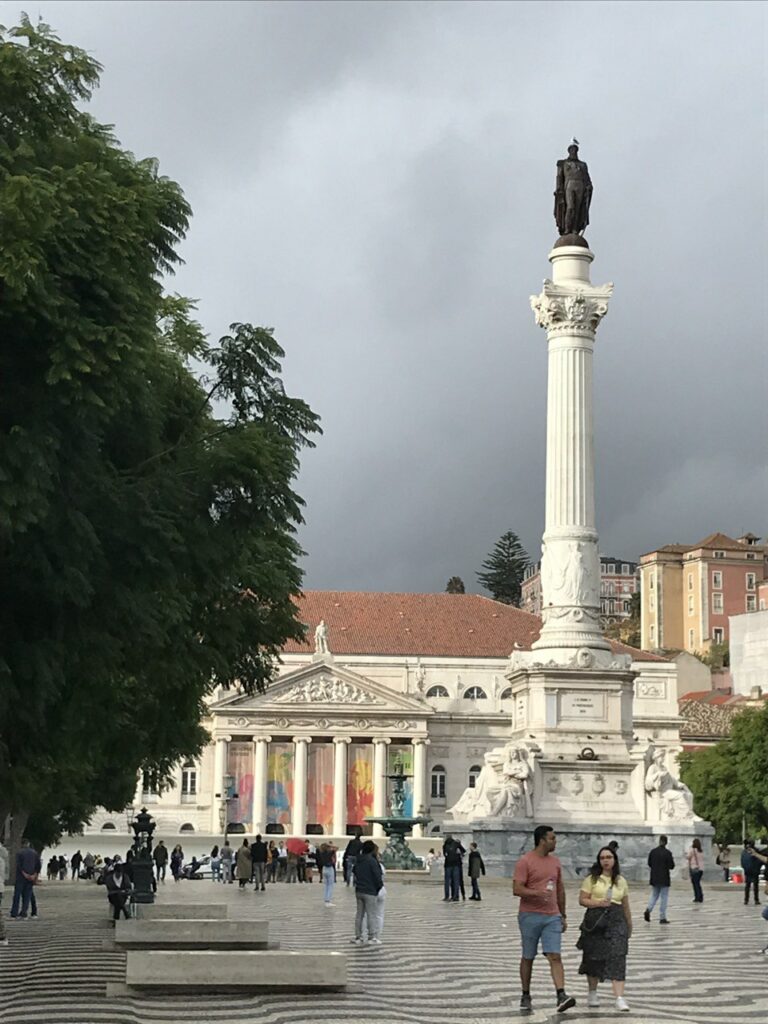What happened to Portugal?
Written by Nadia Podrabinek
Hello, my name is Nadia. I usually write about traveling (there are so many places to fit all the lifestyles), relocation, and living in a foreign country (adapting to a different culture). My travels stretch beyond Spain, with journeys to the US, Italy, Norway, Portugal, and France. Relocating to Spain in 2018, I lived in cities from Barcelona to Madrid, currently calling Valencia home. Follow me on Twitter, Facebook, Instagram, or LinkedIn! ... show more

We need to talk. I understand that life is ever-changing, so to speak, but after a recent conversation with my American friends who are living in Portugal, I’ve decided that it requires a blog post.
Let’s review what has changed for a couple of years in Portugal.
The short answer: cost of living has increased, inflation, and housing market got worse.
What people say on Reddit
I hate Airbnb, but a housing crisis is only solved by BUILDING MORE HOUSES. Politicians and people saying that you need to put caps on rent and limit airbnbs are FULL OF SHIT if they do not also allow for more houses to be built.
More often than not that is not happening because of pressure from house owners to NOT build more houses, so the price of their houses can go up.
SegheCoiPiedi1777
We learn nothing from history. As a Portuguese, who doesn’t even own real estate in Portugal, I see this as a repeat of the errors of the post revolutionary period, where there was no profitability in renting or selling, so no one was building. And then there was urban chaos of illegal buildings. And when the market freed up in the 90s, it was a chaos of overbuilding with low quality. Remember that not so long ago people were complaining that downtown Lisbon was falling apart, with abandoned and derelict buildings every other door. Now that everything looks nicer and shiny, you want to steal away from those who invested. And most of all: for each buyer, there was a seller. Someone profited from selling their old house at inflated prices. And the investor still got the economy going thru rebuilding, creating jobs. My country will never move forward, because envy will forever hold it back
Choice-Region-8601
The property system is broken all over the west. I know it’s horrible but governments must step in to stop this hoarding of property.
It’s not Mr Silva that has 3 houses. It’s the “investment funds” that gobble up hundreds of houses/flats to launder money.
The state of real estate in the UK (which I think is where everywhere else will end up) is simply abhorring – if you want to go for a ride, read about it.
DrChetManley
The governments ARE creating the problem. Can’t you see that it’s the endless intervention that is creating the opportunity for those with capital to take advantage of it? Governments are creating scarcity under the guise of ‘levelling the field’. Governments and other local authorities are the biggest landowners. If they wanted to fix the issue, they could just give land to the people! This is obviously simplistic, but if you end scarcity, then you get closer to the solution
Choice-Region-8601
The Rising Cost of Living
One of the most significant changes that have been felt by both locals and foreigners is the increase in the cost of living.
In the recent years, for many expats, Portugal was chosen for its affordability compared to their home countries. However, inflation has not spared this southwestern European nation. Now, everyday items like fresh milk have seen price hikes, with a liter of milk going from 0.85 cents to closer to a €1.
Housing Market
The housing market has seen a considerable uptick in prices, especially in major cities like Lisbon and Porto. Many of my friends and their friends have faced rent increases.
The demand for long-term rentals has surged, leading to a shortage and consequently, higher prices.
This situation has pushed some people to consider living outside the major cities, which might be a blessing in disguise as it disperses the population and integrates people more into the Portuguese culture.
The Shift to Smaller Towns
With the cost of living and housing prices in the cities becoming less affordable, there’s a growing trend of moving to smaller towns. This move can offer a more integrated experience into Portuguese life and may be more suitable for those on a fixed income.


Social Sentiments
A new sensitive topic has emerged in recent months: an anti-foreigner sentiment, particularly in Lisbon. It is definitely gaining traction in social discourse.
Transportation: A Mixed Bag
Public transportation costs have slightly increased, but services like Uber and Bolt remain affordable. Portugal has had a few train strikes recently, which has made poplr rely more on buses, which are quite reliable and cost-effective, by the way!
The Car Conundrum
If you are living in Lisbon or Porto, it’s not 100% that you need a car. The city’s infrastructure makes walking and public transportation more convenient than dealing with traffic and parking.
Perception vs. Reality: Portugal’s Popularity
False: Portugal’s popularity among foreigners has dramatically increased in the last three years.

According to Google Trends data, which shows that while there was a rise in interest in 2021, it was a trend seen across many countries, likely due to the increase in remote work opportunities.
The interest in Portugal has neither significantly risen nor fallen, which challenges the media narrative of a foreigner influx specifically targeting Portugal.
Visas
Portugal has seen several policy changes that have affected expats and locals alike.
The Non-Habitual Resident (NHR) tax regime is being phased out, and there have been adjustments to the Golden Visa program and the introduction of the D7 and D8 visas.
Additionally, there have been attempts to regulate local accommodation to prevent neighborhoods in Lisbon and Porto from being overrun by tourists and short-term rentals.
These rapid changes have introduced a sense of instability and uncertainty, particularly if you are considering moving to Portugal.
Golden visa
Portugal has re-endorsed changes to its Golden Visa program that came into effect in October 2023. After that only alternative investment pathways will remain, like creating 10+ jobs or investing €500k+ in research, cultural heritage, or funds.
It will no longer be possible to invest €1.5 million or acquire €500k+ real estate.
The real estate option was quite popular, so the impact to the housing market is expected.
Final Thoughts

On a positive side, the life normalized post-pandemic, people are more willing to meet and it’s easier to integrate into the social fabric of Portugal.
Also, despite the recent changes, Portugal is still beautiful. Consider what type of lifestyle you want and to be mindful of the budget when choosing where to live in Portugal.
Read more
- 9 Cheapest Places To Live In Portugal
- Is Lisbon Still Worth Visiting in 2024?
- Best Hikes in Portugal
